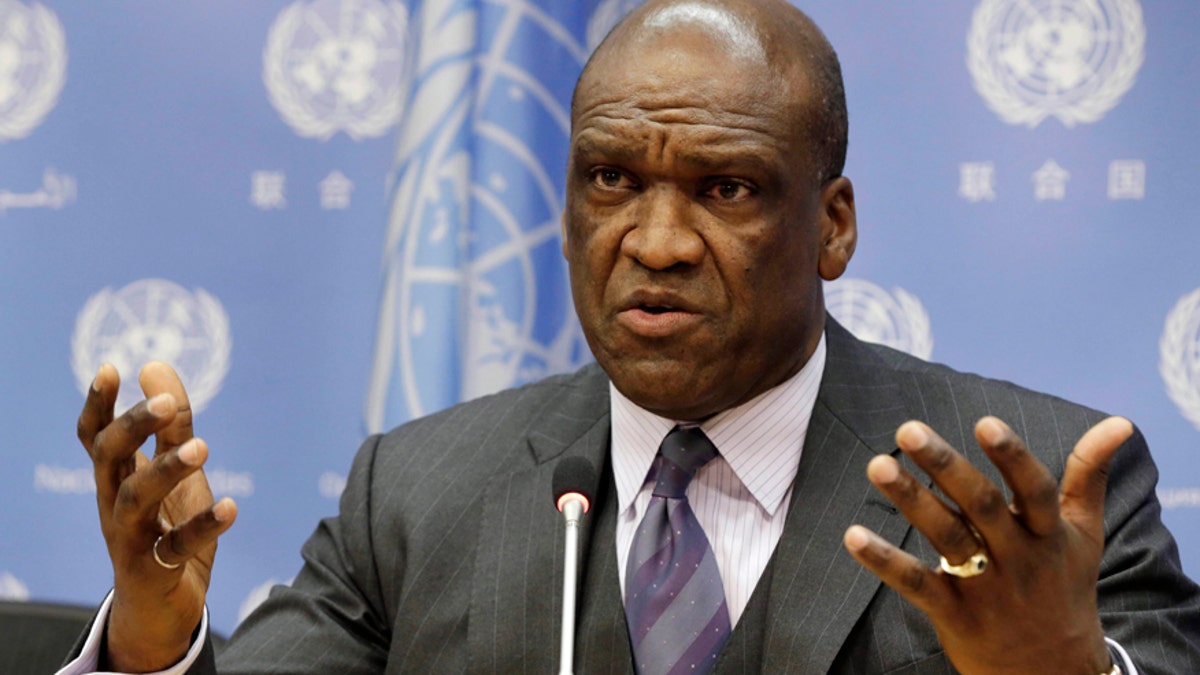
Sept. 17, 2013: Ambassador John Ashe, of Antigua and Barbuda, the former president of the General Assembly's 68th session, speaks during a news conference at United Nations headquarters. (AP)
Former U.N. General Assembly President John Ashe of the twin-island Caribbean nation of Antigua and Barbuda died on Wednesday in the United States as he was facing criminal charges in a bribery case. He was 61.
Ashe died at his home in Dobbs Ferry, New York, according to Sgt. Vincent Ingani, of the Dobbs Ferry Police Department. He gave no other details.
Current U.N. General Assembly President Mogens Lykketoft confirmed his death, saying Ashe died of a heart attack.
"Despite the many as yet unproven accusations made against him, Mr. Ashe was for many years a hard-working and popular member of the diplomatic corps in New York and at the United Nations," Lykketoft said in a statement. "I know that his death will come as sad news to the many professional friends and colleagues he made during his time here."
Ashe was a former U.N. ambassador from Antigua and Barbuda who served in the largely ceremonial post of president of the 193-nation assembly from September 2013 to September 2014.
He was accused last year by U.S. federal authorities of turning the position into a "platform for profit" by accepting more than $1 million in bribes.
The alleged conspiracy involves six others including a billionaire Chinese real estate mogul, two diplomats and a humanitarian organization officer.
Ashe pleaded not guilty to the charges and his lawyer had said he would be vindicated. It wasn't clear how Ashe's death would affect the bribery case.
"It's a tragic loss for his family and the community. He was preparing to fight his case at trial," said Ashe's attorney, Jeremy Schneider.
Ashe held a doctorate in bioengineering from the University of Pennsylvania. He joined the foreign service in 1989 and was awarded the Companion of the Order of St. Michael and St. George by Queen Elizabeth II in 2007 for his global diplomatic service, according to his U.N. biography.
As a diplomat, Ashe was heavily involved in sustainable development issues, taking leadership roles in some of the major U.N. environmental agreements.
"We only have the planet we live on, and if we are to leave it in a reasonable state for the next generation, the quest for a safer, cleaner, and more equitable world is one that should consume us all," Ashe said in a U.N. release.
